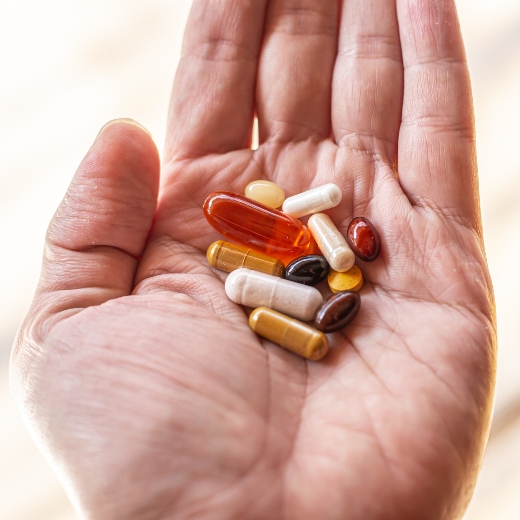When starting your own product line, determining the best mode of supplement delivery can be tough. You will be confronted with a variety of options and seemingly endless questions like: are tablets better than capsules? What capsules are made? What is a capsule?
While capsules and tablets have similar purposes – to provide the body with medication in oral form – there are some key differences between these two that you have to be mindful of. Here we’ve prepared a quick guide to help you better understand what is capsule, what separates a capsule from a tablet, and all the other necessary information that you have to know before deciding which form of dietary supplement you can add to your brand.
What is Capsule?
Capsule is a type of medication that is enclosed in an outer shell – that can come in hard and soft gel form. When taken orally, the shell breaks down into the intestines and the medication is absorbed into the bloodstream, travels into the liver, and gets distributed to the target areas of the body.
While capsules are usually formulated from animal source gelatin, vegan and animal-cruelty certified companies like The Omnium Group, have successfully developed vegetarian liquid capsules made from organically grown ingredients that are gently extracted without harmful solvents. These capsules have become an alternative to tablets in delivering therapeutic compounds (not only solids but also nonaqueous liquids and semisolids) to the body.1
What are Tablets?
As the most common form of oral medication, tablets have offered an inexpensive means of controlling chronic conditions, easing symptoms, preventing diseases, and providing overall long-term health and well-being.2 Compared to capsules that are cased in shells, tablets are made from compressed powdered ingredients that break down within the digestive tract.
Depending on the type of medication needed, most often, tablets are taken with water. To make it even easier for children to take, chewable tablets are also made available.
So, Which is Better: Capsules or Tablets?
Capsules and tablets both provide the body with medication in oral form. Therefore, there is technically no better mode of delivery between the two. Both have advantages and disadvantages. Compared to capsules, tablets have longer shelf-stable. However, capsules are known to be fast-acting and can be effectively absorbed by the bloodstream because of their formulation. Nonetheless, the effectiveness of these two modes of oral medication actually depends on how these two were formulated by the manufacturing company.
Either way, if you’re looking for a private labeling company or manufacturer in Riverside and San Bernardino Valley, California that can cater to your capsules and tablet needs, then don’t hesitate to contact The Omnium Group. Our team of experts and FDA-certified facilities can accommodate custom formulation and product development services to tailor your brand needs. We welcome well-established companies and start-ups and help them step up in the industry by providing unparalleled quality manufacturing and production services. Contact us now and let’s discuss how we can start creating your capsule or tablet!
References:
1 Gullapalli RP, Mazzitelli CL. Gelatin and Non-Gelatin Capsule Dosage Forms. J Pharm Sci. 2017 Jun;106(6):1453-1465. doi: 10.1016/j.xphs.2017.02.006. Epub 2017 Feb 14. PMID: 28209365.
2 Why You Need to Take Your Medications as Prescribed or Instructed. https://www.fda.gov/drugs/special-features/why-you-need-take-your-medications-prescribed-or-instructed
